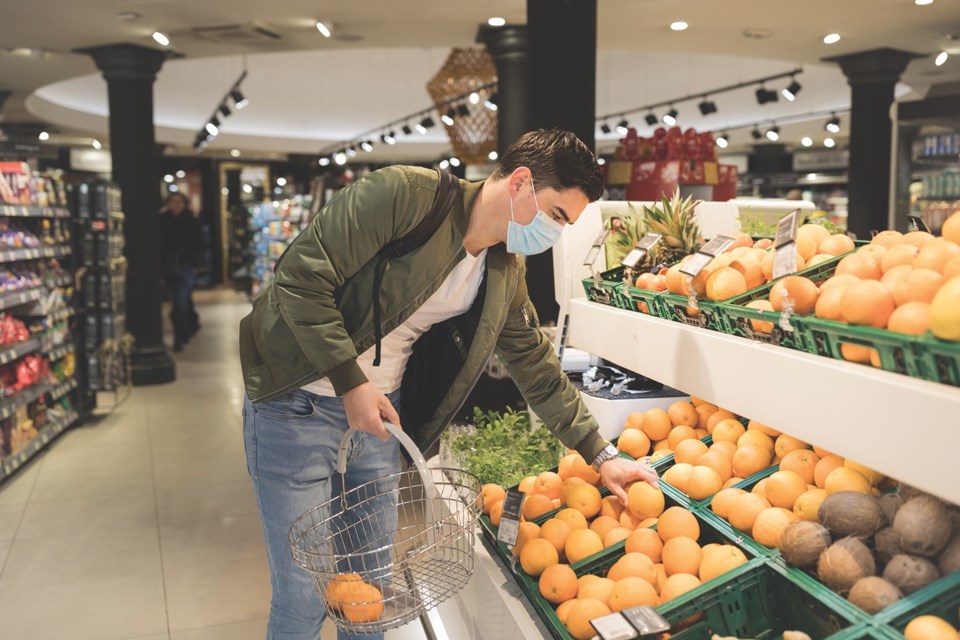More people are eating out in restaurants and shopping less for groceries so they can cook at home in Burnaby.
That’s the latest based on numbers released Thursday by Statistics Canada.
Sales at food and beverage stores were down 3.4 per cent as sales at supermarkets and other grocery stores fell 3.4 per cent and beer, wine and liquor stores lost 2.7 per cent. Sales at convenience stores fell 8.4 per cent, and specialty food stores dropped 0.4 per cent.
When the COVID-19 pandemic started, many people feared shortages and starting stocking up on many items, with some even hoarding items such as toilet paper. That led to large sales jumps for Real Canadian Superstore, Safeway, Save-on Foods, T&T and others in Burnaby.
Restaurants in Burnaby suffered with closures due to high numbers of B.C. COVID-19 cases and then when they were reopened, many customers stayed away. Things are starting to normalize for many Burnaby restaurants with new safety measures, including the B.C. vaccine card.
Overall, Canadian retail sales dropped 0.6 per cent to $55.8 billion in July as sales at supermarkets and grocery stores fell with more people returning to restaurants and patios.
However, Statistics Canada said Thursday that its initial estimate for August suggests retail sales gained 2.1 per cent for that month, but cautioned the figure will be revised.
BMO economist Shelly Kaushik said that as the economy reopened shoppers diverted some of their spending from goods to services.
"While the drop in retail sales is consistent with a pullback in July GDP, the early indications for August point to a broader rebound in activity," Kaushik wrote in a report.
Statistics Canada reported last month that the economy contracted at an annualized rate of 1.1 per cent in the second quarter and said its preliminary estimate pointed to a pullback of 0.4 per cent in July.
Figures for manufacturing and wholesale sales released last week also showed sales fell in July.
Statistics Canada said Thursday that retail sales in July fell in five of 11 subsectors.
Sales at building material and garden equipment and supplies dealers were down 7.3 per cent for the month, but remained elevated compared with pre-pandemic levels.
Motor vehicle and parts dealers reported sales gained 0.4 per cent in July, led by a 0.8 per cent increase at new car dealers.
Sales at gasoline stations rose 1.4 per cent.
Statistics Canada said core retail sales — which exclude gasoline stations and motor vehicle and parts dealers — fell 1.3 per cent for the month.
Retail sales in volume terms fell 1.1 per cent in July.
- With files from the Canadian Press



